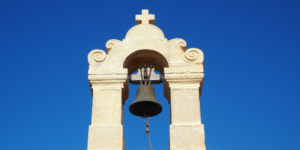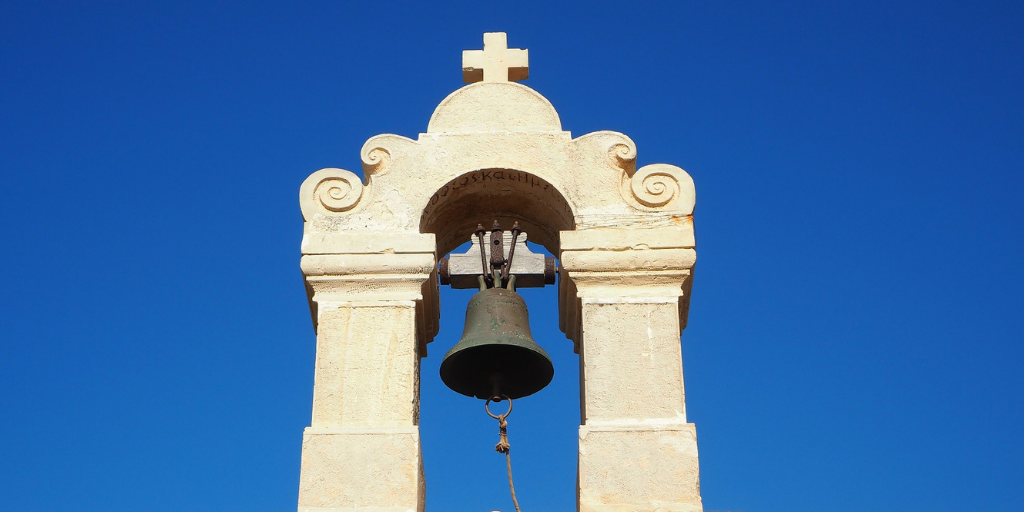I’m an Anglican priest planting an Anglican church in Indianapolis. Most people who come to my church comment on our liturgy. “I love the liturgy!” or “The liturgy sure is… interesting!” are frequent comments.
But to call my church “liturgical” and another church not liturgical is false, I think. Every church is “liturgical” in that we have a pattern to our worship each week.
The better question is what our liturgy is actually doing, and if that is aligned with God’s vision for his church. It’s a question every church planter has to ask.
My journey into liturgy
I began dreaming about planting my first church in 2005, partly because I was beginning to see some weaknesses in the stuff we did on Sundays every week (aka our liturgy).
We were a charismatic-evangelical church strongly influenced by the Vineyard, so we’d sing worship songs for 30 minutes or so, take an offering, hear some announcements, hear a sermon, and have a time of ministry (with more singing) at the end. Pretty much every week, that was the pattern.
This was fine, but what I started noticing was that some of the people who seemed most actively engaged in the elements of our church service were also the least spiritually formed in the image of Christ.
Learning how to worship from dead people
Why the disconnect? I wondered. So I began to explore worship from a theological and historical perspective. (One of the most helpful books for me was Liturgical Theology, by Simon Chan, a Singaporean Pentecostal pastor and theologian.)
I was floored by the fact that Christian worship has had a certain “shape” for most of its existence. I had always viewed these traditions with suspicion, but now I was starting to recognize that there might be some ancient wisdom to them!
As G.K. Chesterton wrote, “Tradition means giving votes to the most obscure of all classes, our ancestors. It is the democracy of the dead. Tradition refuses to submit to the small and arrogant oligarchy of those who merely happen to be walking about.”
People who knew me freaked out a little when I started voicing these thoughts.
Liturgy? Like smells and bells?
I remember one conversation with a Christian friend who was the head roaster at a local coffee shop I frequented. He and I liked to talk theology and church quite a bit.
He noticed the book I was reading, and exclaimed, “Liturgical theology?! Isn’t that an oxymoron?”. I was feeling a little cheeky, so I answered him with a question of my own, “What, is your church not liturgical?”
“No, we don’t believe in all that hocus pocus!” he said.
“So you guys do something completely different every single Sunday? You just make it up as you go?” I asked.
“Ummmm…”
“And people never know when you’re going to meet? Sometimes it’s a Thursday night, other times a Sunday morning? And sometimes you preach sermons but other times to read Tom Clancy novels?”
“No, we meet on Sunday mornings, and I guess we do pretty much the same kinds of things week to week, songs, prayers, Scripture, sermons.”
“Then your church is liturgical,” I told him.
“Well, we don’t do those rote prayers where everyone says the same thing together…” he said.
“But when you sing, aren’t you singing the same lyrics together at the same time? Don’t you sometimes repeat a chorus? Or do people spontaneously do whatever pops into their minds at any given time?” I asked.
“Well, no. We all sing when it’s time to sing. And we all listen when the sermon happens. I see what you’re saying,” he smiled, “but I still don’t like liturgy!”
That conversation highlights the frustration I had been experiencing when I tried to talk about what I was learning and envisioning for a church.
I was trying to talk about the shape of our worship, and how it forms our character over time. But everyone else heard me talking about a personal preference.
“Some people like smells and bells,” the thinking goes, “Other people like happy-clappy choruses. Let’s have all different kinds of worship services for all the different preferences people have!”
But liturgy really isn’t about preference
As long as we keep looking at worship services through the lens of individual preference, we remain blind to the consumeristic ideology at work behind that assumption!
Liturgy is not about preference – it’s part of a series of much larger questions that rarely get asked.
The conversation has to be elevated from quibbling about personal taste to recognizing what the church IS, and what worship is FOR.
Since every church has a pattern to their worship, every church is liturgical. Liturgy isn’t about preference, it’s just inevitable.
The choice isn’t liturgical vs. non-liturgical. The choice is good liturgy vs. bad liturgy. And there’s no way to evaluate that unless we know what the church is, and what worship is for.
Bigger questions need to be answered
Most evangelical churches can’t really answer this question. Their Sunday morning services are purely functional, designed mainly to attract people so they can hear a message about how to be saved, so the church can “grow.”
Unto what? That’s the question these churches can’t answer. The organization exists to sign people up for heaven and get bigger. We just assume that’s good.
There’s no real telos to any of it… the “church” ends up merely being the team that keeps the “salvation machine” running. We churn out decisions and recruit people to the team so we can churn our more decisions and make the team bigger.
Again, UNTO WHAT? That’s the question an ecclesiology would be able to answer.
Every church is a liturgical church. The question isn’t whether or not we should “go liturgical” but rather what does our current liturgy actually do? What assumptions lie at the heart of it? How is it forming our theology and character over time?
Simon Chan says, “Bad worship produces bad theology, and bad theology produces an unhealthy church.”
So, no matter how “low church” or “organic” your church plant is, it’s still a liturgical church! You need good liturgy for your church plant that reflects what the church is, and aligns with what worship is for.

Share this Post

